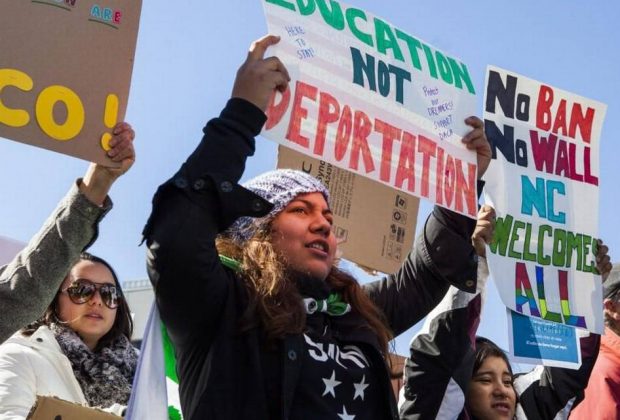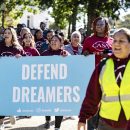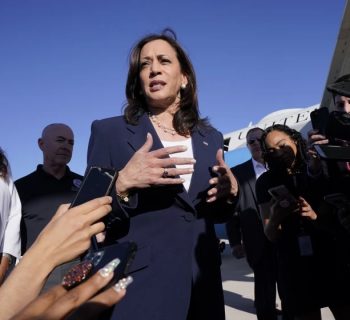Opinion by Jose Badillo Carlos | The Charlotte Observer | JUN. 1, 2023 | Photo by Casey Toth
One afternoon, when I was 19, I drove my mom to the grocery store to buy milk and cereal for my younger sister. For most families, this type of errand disappears from memory. But for me, it was a nightmare. As we neared the store, we passed a police car in oncoming traffic. I had done nothing wrong, but the officers locked onto us — a Mexican mother and son — and made a U-turn. I pulled into the store parking lot and rushed my mom inside where we watched the cops circle, waiting for us to exit. We had to call my aunt to pick us up.
This happened 15 years ago. At the time, we were undocumented immigrants who’d fled our Mexican hometown in 1999 when it became overrun with violence. My parents moved the three of us to suburban Chicago. But the daily stressors of undocumented life wore on us. At any moment, we could lose the life we’d built, the house we purchased in Aurora, the factory jobs my parents had held for years, even the friendships my two American siblings and I leaned on.
When Deferred Action for Childhood Arrivals (DACA) became available in 2012, my whole life changed. Suddenly, I could study, work and drive without fearing deportation. This allowed me to complete my PhD in Hispanic and Cultural Studies and land my dream job as a tenure-track Assistant Professor of Spanish at Queens University of Charlotte.
When my students ask questions about immigration in class, I pull from both my academic knowledge and my lived experiences. This combination is an invaluable asset and one for which my students frequently thank me.
DACA has allowed us to thrive and give back to society, but it’s vulnerable to the whims of those in power. Former President Trump tried rescinding it in 2017 and last fall, a federal court ruled that DACA is illegal. On June 1, a federal judge will review an appeal to end DACA entirely. This means the fear I felt driving to the grocery store 15 years ago will continue to haunt the lives of hundreds of thousands of young people.
Legislation that provides a pathway to citizenship for Dreamers benefits everybody. Most DACA recipients have lived decades in the U.S. and are using their American education and training to strengthen vital industries. We are no longer children; we are responsible adults working as doctors, nurses, educators and STEM specialists, filling critical gaps in the workforce. Approximately 542,000 essential workers are Dreamers, and according to the American Immigration Council about 62,000 of them work in health care. The AIC estimates Dreamers pay $6.2 billion in taxes.
Getting rid of DACA would hurt too many people. Approximately 250,000 American children would lose their parents, fall into poverty, or be forced to move to foreign countries where they don’t speak the language. Schools, hospitals, and businesses would lose scores of workers. American spouses, like my wife, would suffer. And for what? Polling shows widespread support for an earned pathway to citizenship for Dreamers, with about 80 percent of voters across the political spectrum supporting protections.
Compared to most DACA recipients, I’m lucky. My wife is an American citizen, which made me eligible for a green card. I received it last year after a years-long process. I agonized about the outcome, not just for myself but also for my wife. She works in property management for a company that does not provide affordable health care coverage, Because she has Crohn’s disease, she relies on my health insurance to cover her monthly injections. Without the security of my job, which I’d lose if DACA got fully revoked, her prescription costs would jump from approximately $5 per month to up to a potential $6,000 per month.
These days when my wife and I get together with friends, our conversations cover the typical things: house hunting, school districts, property taxes, commutes. I love these conversations, because of how utterly normal they are. How ordinary. Now that I have my green card — and am on my way to citizenship — I will never, ever take this normalcy for granted. My heart breaks for my fellow Dreamers who are still waiting.







